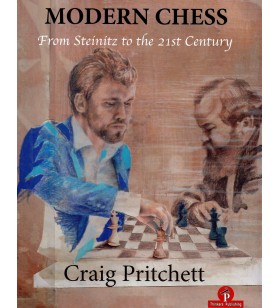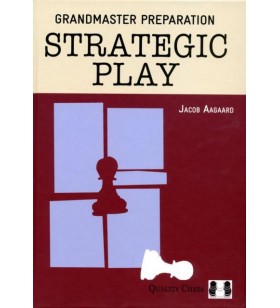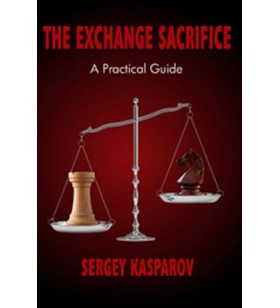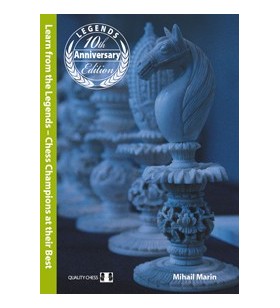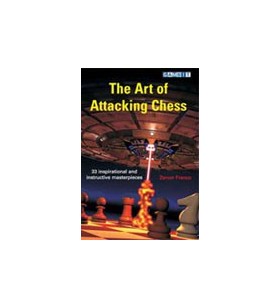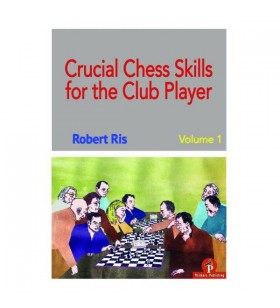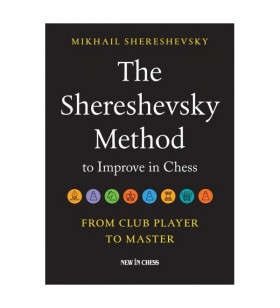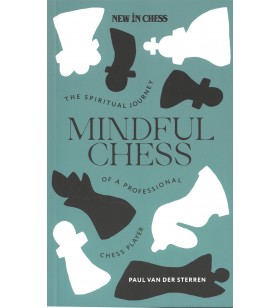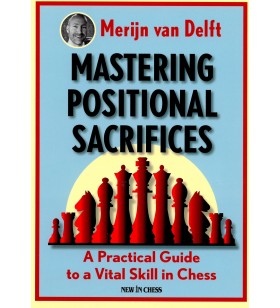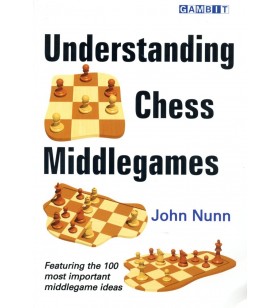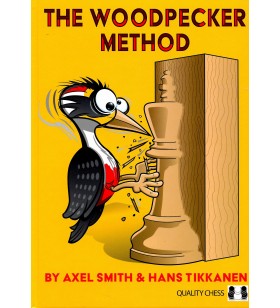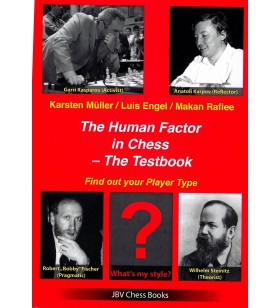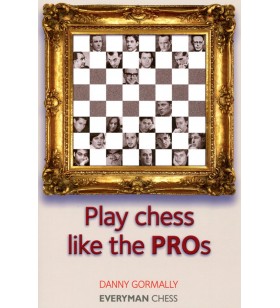- CHESS
- Chess boards and pieces
- Chess books
- Chess books in English and others
- Opening books
- The Ruy Lopez
- Other open games
- Other semi-open games
- The Sicilian
- French Defence
- Pirc & Modern Defence
- Caro-Kann
- Queen´s Gambit
- Slav Defence & Semi-Slav
- Other closed games
- Other semi-closed games
- King´s Indian Defence
- Nimzo & Queen´s Indian
- Grünfeld
- English Opening
- Dutch Defence
- Miscellaneous openings
- General and repertoire books
- Endgame books
- Books on grandmasters
- Books on tournaments
- Books in Dutch
- Miscellaneous
- Chess magazines
- General and middle game books
- Opening books
- Chess books in French language
- Chess books in English and others
- Chess software and DVDs
- Chess computers
- Equipment for clubs
- BOARD & BRAIN GAMES
- GO
- BRIDGE & CARDS & TAROT
- POKER & CASINO GAMES
- PUZZLES & BRAIN TEASERS
- DARTS
De Macht van het Loperpaar
 Livraison sous 48 heures via Bpost*
Livraison sous 48 heures via Bpost*
Livraison gratuite à partir de €69 (Belgique, France, Pays-Bas, Luxembourg, Allemagne)
 You can cancel your order
You can cancel your order
For fourteen days!
 Secure payments
Secure payments
All payment cards accepted.
Specific References
16 other product
DVORETSKY, YUSUPOV - School of Future Champions 1
FRANCO - The Art of Attacking Chess
Van der Sterren - Mindful Chess
The Dutch Grandmaster Paul van der Sterren was a professional chess player for over twenty years. At the peak of his career, he qualified for the Candidate Matches for the World Championship - and was only four victories away from the World Title. In Mindful Chess, you will get his long and short answer to whether meditation or mindfulness will help your chess.
As a boy, Van der Sterren became fascinated by chess and became a gladiator at the chess board. To quote Theodore Roosevelt, he met with both victory and defeat, much joy and suffering. When, later in life, he discovered vipassana meditation, he met again with joy and suffering - and approached these issues with the same total devotion as he had brought to chess - thousands and thousands of hours on the cushion and studying Buddhist literature.
The reader will follow the two journeys through chess and meditation. And find answers to questions such as: What is chess? What is meditation? Who am I? What is I? Or will the answer elude you, is too much inexplainable and unknowable?
Paul van der Sterren (1956) was a professional chess player for over twenty years. At the peak of his career, the Dutch grandmaster qualified for the Candidate Matches for the World Championship – and was only four victories away from the World Title. He is the bestselling author of Fundamental Chess Openings (Gambit Publishers). In 2023 New In Chess will publish his books: Mindful Chess and In Black and White - a spiritual and a chess autobiography. 127 pages
NUNN - Understanding Chess Middlegames
Un nouveau livre, mais une formule qui rappelle singulièrement les vieux “101” : 100 courts chapitres (2 pages pièce) chacun sur un sujet précis, deux exemples pour illustrer ledit sujet et zou, voilà un nouveau chef-d'oeuvre vite pondu Trêve de plaisanterie : l'ensemble se laisse lire et constitue une bonne introduction à des thématiques qu'on aura ensuite profit à approfondir via des ouvrages plus spécialisés.
Muller/Engel/Rafiee The human factor in chess - The Testbook
This approach is intended to enable the reader to assign himself to one of the player types and find out whether he belongs to the activists or rather to the pragmatists, theorists or reflectors. The result allows to draw conclusions in order to further expand the individual strengths or to develop a more universal playing style overall.
Because even if you usually win thanks to your strengths, it makes sense to work on your own weaknesses as well. Of course, if there is only one move in a position, you should be able to find it. Playstyles are especially important in positions where you have a great choice. However, they also play a role when you choose the type of position, which you should strive for based on your style.
Interestingly, a playstyle can also be imitated, which may even be the appropriate strategy against certain opponents. For example, certain characteristics stand out clearly in activists, and being able to adjust to them as an opponent is of course very valuable. A good example is Kramnik's win over activist Kasparov (at the London 2000 world championship match). Since Kramnik always managed to steer the game in the direction appropriate to his style, his big opponent never had the chance to demonstrate his own strengths in positions with attack and initiative.
While 'The Human Factor' was about a clear distinction of the four playing styles, this book aims to emphasize the universality of each player. After solving the tasks tailored to the four player types, it becomes clear how your own competencies are distributed. Accordingly, GM Vincent Keymer states in his foreword:
"Even if the further development of one's own player personality to a universal player who unites all player types may remain a utopia, it's still worth pursuing."

 Français
Français Nederlands
Nederlands English
English
